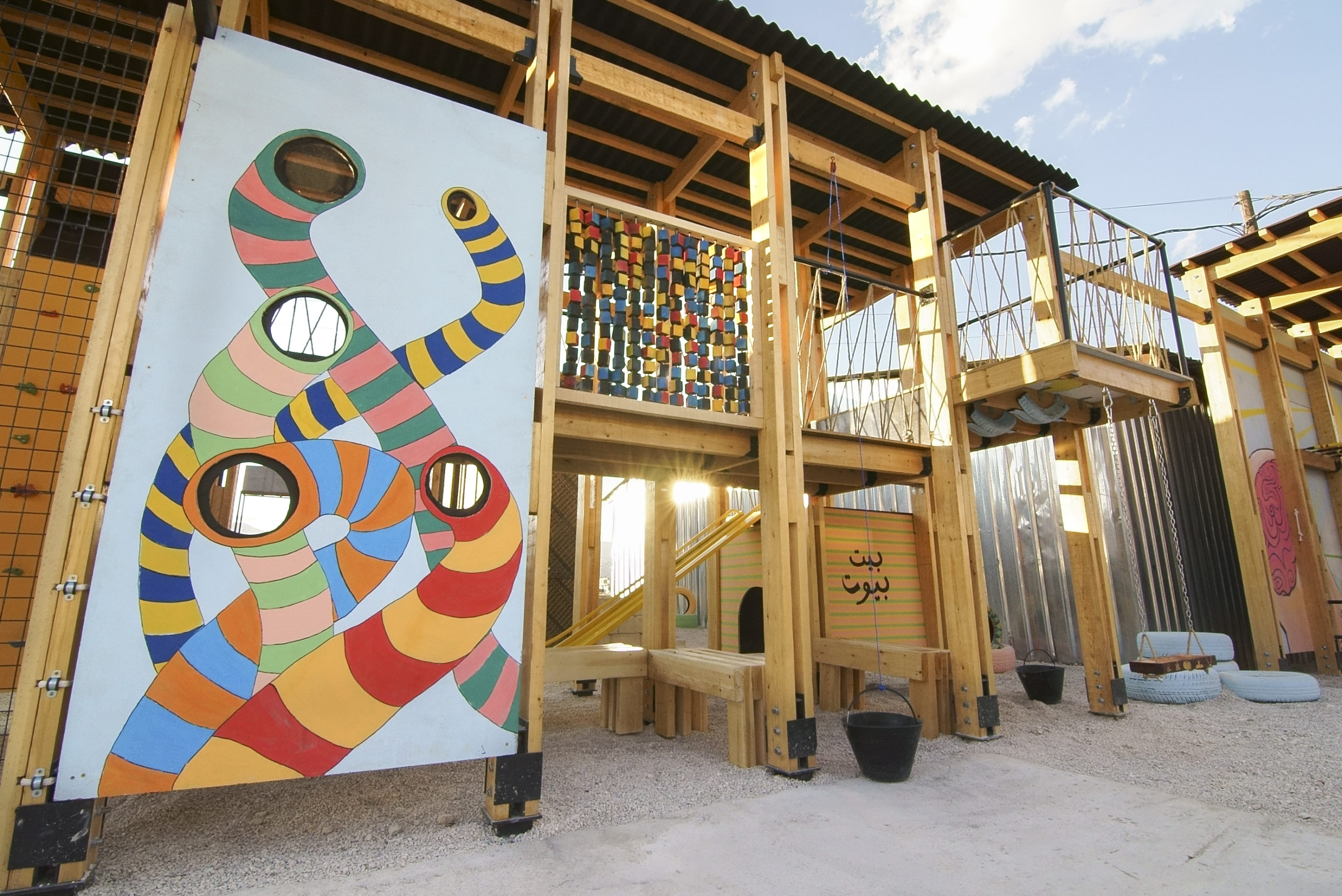Bar Elias, Lebanon, 2015

In Lebanon, the United Nations and other humanitarian organisations have delivered some support to Syrian refugees, but the informal settlements within which many live do not provide a vibrant and safe atmosphere for children. The Kayany Foundation and the American University of Beirut have constructed five schools in the region and provided education for the children. Building on their work, CatalyticAction led the process of designing a playground in one of these schools.
Through context analysis and participatory design, it was identified that children would benefit from private spaces where they could play and relax. In the context of Lebanon, refugee children rarely benefit from this type of space as they live in tents, often sharing the same room with many members of the family. It was therefore important to provide this type of space through the playground. Multidisciplinary research (psychology, design, education) also provided insights
into how exactly to integrate private spaces into the design of the playground, such as through play houses. Spatial choices, including where to place the play house, how big it should be, what should be inside (colours, furniture, etc.) were all elements that were carefully considered during the design process in order to achieve a sense of privacy. For example, a low ceiling (1 m) and a fairly small size (2 sqm) helped children to feel that the space was meant only for them and not for adults, reinforcing the idea of privacy.
